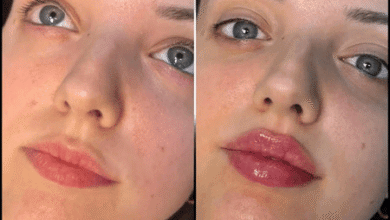Why You Feel Bloated After Every Meal (and What to Do About It)
You enjoy your meals, but afterward, your stomach feels like a balloon. Bloating after every bite can be more than an annoyance; it might signal underlying gut imbalances. Fortunately, understanding the causes and knowing when to consult gastroenterologists can make all the difference.
1. Common Triggers for Post-Meal Bloating
Bloating after a meal isn’t just uncomfortable – it can interfere with your productivity, social plans, and confidence. While occasional bloating may be harmless, persistent bloating often has specific root causes. Here are some of the most common and overlooked reasons why your stomach feels like it’s inflating after you eat:
Swallowed Air
Eating too fast, talking while chewing, chewing gum, or drinking through straws can cause you to swallow excess air. This air can get trapped in your digestive tract, leading to uncomfortable bloating and burping after meals. Simply slowing down and eating mindfully can make a big difference.
Dietary Culprits
Foods high in FODMAPs, like beans, broccoli, onions, dairy, and certain fruits, are harder to digest and tend to ferment in the gut, producing excess gas. These foods don’t affect everyone the same way, but for many, they’re major contributors to bloating and discomfort after eating.
Food Intolerances
Lactose intolerance is one of the most common and under diagnosed causes of bloating, especially in Asian populations. If your body can’t break down lactose (the sugar in dairy), it ferments in the gut, causing gas, bloating, and even diarrhoea. Other intolerances, such as to gluten or fructose, can have similar effects.
Gut Microbiome Imbalance
An overgrowth of certain bacteria in the small intestine, known as SIBO, can lead to premature fermentation of food. This causes excess gas and bloating shortly after eating. Gut microbiome imbalances can develop from stress, antibiotics, or diet changes, and often require medical attention for proper diagnosis and treatment.
2. What You Can Do Right Now
| Tip | What to Try |
| Slow Down | Chew thoroughly, savour each bite, and avoid straws and carbonated drinks. |
| Track FODMAPs | Keep a food diary to pinpoint problematic ingredients like beans, onions, and wheat. |
| Test for Intolerances | Lactose or fructose tests may reveal hidden triggers |
| Stay Active | A 10‑minute walk post meal helps move gas through your system and reduces bloat. |
| Try Probiotics | Certain strains may improve digestion, but consult a nutritionist or gastroenterologist first. |
| Manage Stress | Techniques like deep breathing, meditation, or evening walks can ease gut tension. |
- When to See a Specialist
If bloating is frequent and accompanied by symptoms like persistent pain, blood in stool, weight loss, or irregular bowel habits, it’s time to visit gastroenterologists like Dr Fernandes Mark Lee. These specialists can order tests like hydrogen breath tests (for SIBO), food intolerance panels, endoscopy, or colonoscopy to explore deeper causes.
Conclusion
Routine bloating isn’t just something to “live with”, it’s your body sending signals. Simple tweaks like slowing your eating pace, cutting out trigger foods, staying active, and de-stressing your day can help, but sometimes, a deeper investigation is needed. With benign tools like breath tests or dietary tweaks, you can reclaim comfort. And if that discomfort sticks around? It’s wise to consult gastroenterologists like Dr Mark Leeor other trusted gut specialists.
Take charge of your gut, start small, stay observant, and reach out when symptoms persist.




